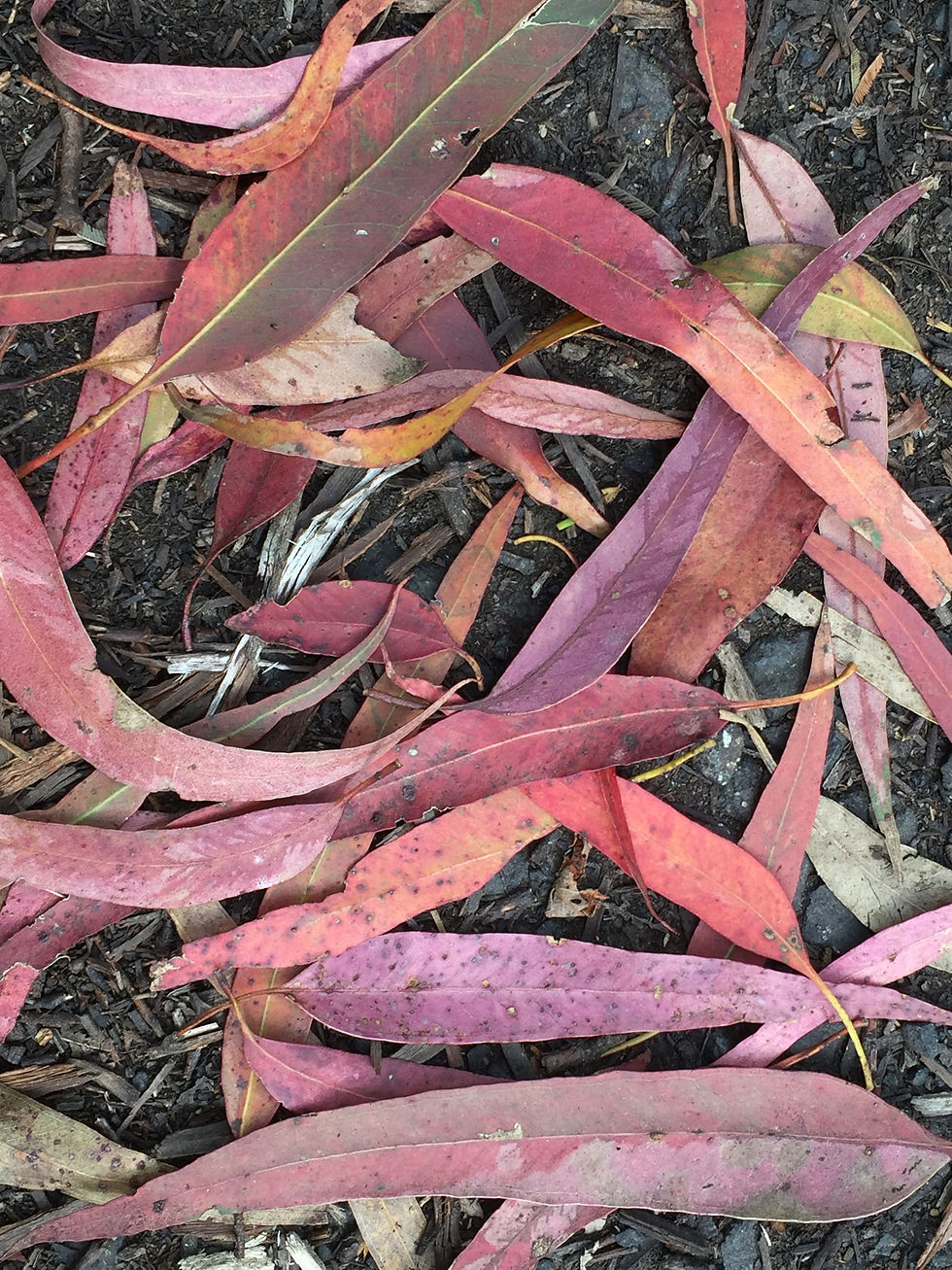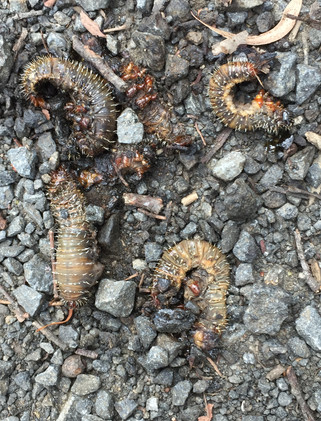Welcoming 2021 at Christmas Pines
- Louise Muller
- Jan 2, 2021
- 3 min read
Such a beautiful day as we drove to Christmas Pines. Life has been getting in the way of being up here I realise as a gaze through the car window. Our comings and goings have generally been by night in recent months. It is great to see the sunshine. I don't know why we had developed nocturnal driving habits, and in winter I have always enjoyed seeing the dark hills rising out of the misty valley. Today with the sun shining there is the shimmering of red in the tree tops. The new growth of the surrounding Eucalypts. The forest floor is littered with flashes of red amongst the usual brown and green.

On the walk down to the lake there is the unmistakable insect sound of an Australian summer. The constant rhythm of the cicadas combined with the occasional buzz of a blow fly or other insect.
On the walk down to the lake the flies are about, but not land on me. Which I must admit is a bit of a relief. Flies are one of those things I am not particularly fond of over summer. Instead, they are massing at the remaining spots of moisture in the sunny patches along the road. They gather as if attracted by a corpse. Perhaps when these patches dry up I will once again be there target. Thankfully the March flies have not yet emerged. In the cleared sunny patches with some small flowers underfoot the butterflies are fluttering in groups of 2 or 4. Dragon flies hover and a pair of copulating crane flies drift by, a strange floating mass of legs and wings as their bodies entwine. On the track there is the remains of sawfly lavae (or commonly known as spitfire caterpillars - although they are not caterpillars at all, as they will never become a butterfly or moth). These particular individuals appear to have fallen victim to a car tyre. These lava with their 6 legs and bodies covered in short white hairs tend to dine on eucalyptus leaves in late winter and spring before burrowing into the soil to make a cocoon and pupate.
The lake today is a dark mirror. Completely still except for the occasional tiny ripple from a breeze.
This week end there is a group of friends in their 20's (friends of my niece and her boyfriend) enjoying the lodge, residence etc. A very friendly group that it is a pleasure to host. Up the hill we have a kayaking friend and his partner staying. Sean has been a friend of Paul, Walter and I for many years, and besides being a lovely person he is also a keen environmentalist and landscape consultant. Sean and Mel spent hours removing weeds from the property. Sean's main target was the non-chemical eradication of Spear Thistle (also known as Black Thistle or Scotch Thistle, Cirsium vulgare) by cutting off the heads and severing the plant midway and at the base. Smaller plants will not flower until next year, but can be dug out now. Sean also provided some landscaping and water run off potential projects for us to consider. The thistle had not yet gone to seed, so had not had the chance to spread.
Lots of plums were picked from the orchard and a lovely jam has been made. The black cockatoos have also been enjoying the fruit supply, but tend to keep to the higher branches.

The forecast for the weekend was for storms and rain, but the weather has instead been spectacular. I don't mind the weather bureau getting it wrong again. As Covid cases appear to be on the increase my fingers are crossed that the tough restrictions do not need to be put in place again.













'Smaller plants will not flower until next year, but can be dug out now.'
- This is something we should all be aware of and learn to recognise. If we are out walking anywhere on the property and we see a juvenile Spear Thistle while its at flat weed stage, we should pull it out of the ground to avoid an adult plant developing in 12 months !